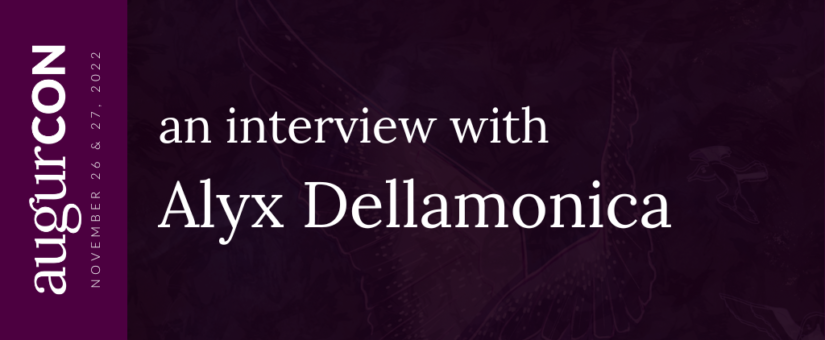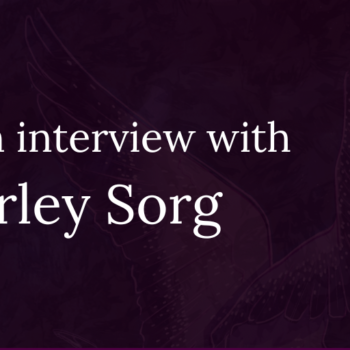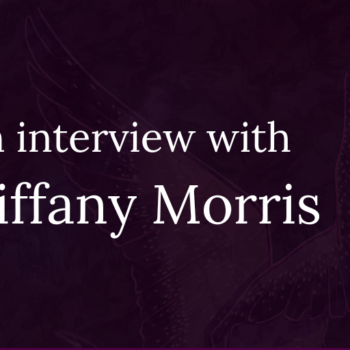
An interview with Alyx Dellamonica #AugurCon2022
- Posted by Augur Blog
- On November 20, 2022
- 0 Comments
- author interview
On November 26 & 27 we’re hosting our second-ever AugurCon, our virtual celebration of speculative literatures! We’re joined by over 45 amazing guests, including authors, poets, editors, and publishing professionals, to explore the intersections of the world we know—and the ones we dare to imagine.
We connected with Alyx Dellamonia, author of Indigo Springs and A Daughter of No Nation, who is a panelist at this year’s AugurCon.
Get your ticket to attend their panel:
Stories for the Futures We Need; Or How To Write With Hope
Saturday, November 26 at 3:30–4:30 PM EST / 12:30–1:30 PM PST
To see the full weekend program schedule, visit our website.
Who do you think is absolutely KILLING it right now in Canadian speculative fiction—novelist, magazine, playwright? What was the last work you reached for when you needed an inspirational nudge?
I am a huge fan of Premee Mohamed’s writing. I’m not really a detached or impartial observer—I would argue readers shouldn’t be detached!—because I got an advance peek at And What Can We Offer You Tonight? when her publisher asked me to blurb it… but her writing is so dense and deeply felt and powerful, and I adore every word of it. Also in hard SF, I adore Derek Künksen’s Quantum Evolution series. These book have all the delightful repartee and action and playful quick thinking of any caper story… and yet the science is really intriguing, and the exploration of what it means to be human in an age of extreme bioforming is incredibly cool and insightful.
Also, both authors will break your heart at some point.
You’re on our panel talking about “Stories for the future we need”; you’ve also described your work as L.X. Beckett as Hopepunk. What led you to explore Hopepunk as a genre—exploring anxieties, imagining solutions, both, other? What’s important to you about writing toward a hopeful future?
A big yes to both exploring anxieties and imagining solutions! I am often afraid that dystopian fiction has as its subtext: give up, we can’t survive. And I encounter a lot of people younger than me who seem to genuinely believe that may be true.
For me, hopepunk isn’t about pretending everything can stay the same—capitalism, consumerism, nationalist competition, and all that. It’s about imagining a society in which the generations that follow us have opportunities to pursue meaningful and rewarding lives without spending every day beset by the concerns of survival and uncertainty. And for me that’s sometimes about saying: okay, these are the things I value about my life and can’t imagine living without, but there’s also these other things that I could give up, if I could be safe and healthy and still preserve that chance at contentment and a meaningful existence.
For everyone those two lists will look different. But if we don’t embrace the possibility that we can have a future that is changed but also recognizably positive, we can’t start thinking about ways to get there. [paragraph break] In a sense, this is a form of the negotiation stage (of grief and other emotional processes). You’re saying: I can bear to lose X if I keep Y. But the difference for writers is it’s a creative negotiation, used for worldbuilding and future discussion.
You’ve blogged recently about writing a screenplay for the first time. How does it feel to write in a new medium in the midst of such a prolific career? Has creating in a new medium come naturally to you? What are some challenges? How have you found your existing spec fic skills come in handy, or are they different beasts?
It’s true—in the last few years I’ve written a screenplay, several poems and co-written a play, Dressed as People with Kelly Robson and Amal El-Mohtar. I’ve just learned one of the poem has been picked up for a VR project that I’m very excited about, and the play—which was produced as a Zoom production for a Fringe festival at the height of the pandemic—has booked two shows for live audiences in 2023.
What’s most exciting about these projects is getting to collaborate. I started my creative career in theatre, but I never got to work on plays that were speculative. Now, after years of writing fiction solo, I get to combine the best of both of those amazing worlds.
You’ve published six novels, and more than 40 short stories. When you think about your career so far, what’s one of the moments that keeps you going—a career highlight, a beautiful moment, an inspiring mentor, or something you’re just incredibly proud of? How has that stayed with you through your career?
A number of years ago I got to go to the Vancouver Writers’ Fest and do a panel with one of Canada’s big name SF writers, which left me a little starry-eyed and, you know, feeling myself. But one of the other opportunities I got there that I wasn’t expecting was meeting so many queer and genderqueer people who were young and just starting out and—even now in a time when it often feels quite safe to be an out genderqueer person working in a public field like publishing!—who clearly just kind of wanted to see that I was an actual working superqueer human artist and not a unicorn. I’m not sure why, but I think I’m always surprised when I see that alchemy happening—see people looking at me and thinking, ‘If they can do it, I can do it.’ And because it surprises me, I love that experience.
One of my closest friends and most important mentors also passed away a year ago, so lately there has also been a lot of doing things because I need to do them to be able to guess at what Linda would have said about them. It’s sort of a benign, self-inflicted haunting.
Say you’re talking to a writer who’s just starting out, who just penned their first poem or short story. What is the number one thing you would tell them that you wish someone had told you—the good, the ugly, the hopeful?
I don’t tell new writers ugly things right out the gate. So many people seemed to be lining up to tell me how terrible the publishing world was, over and over again, at every single juncture of my journey as a baby writer… and even a not-so-baby writer.
So I tell people to celebrate the work they make and be proud of it. I tell them I’m proud of it. I tell them to work to improve and share it when they’re ready. I tell them that getting to work and getting to publish your work is a brilliant, exciting and unbelievably joyous experience… and a privilege!
I don’t pretend publishing specifically is uncomplicated or easy, and there was some of that bad news and finger-wagging advice I probably should have listened to when I was young. But in all my years of writing and teaching I have seen so many people who seemed to need, more than anything, permission. Permission to create, permission to call themselves artists and take on that identity, permission to take time and energy and make it into story.
We’re doing one of the most essential things in the world, and nobody, within or outside the arts, should get to tell us that creating beauty and horror and wonder and possibility are not important. Screw that—it’s crucial. It’s how we all—hopepunk authors and dystopian authors and screenwriters and VR artists and video game creators and actors—build our future.
So write your stuff. Don’t apologize for it. You are more than allowed. You are needed.
That’s what I say.
Hear more from Alyx: Get your ticket to AugurCon 2022
A.M. Dellamonica‘s first novel, Indigo Springs, won the Sunburst Award for Canadian Literature of the Fantastic. Their fourth, A Daughter of No Nation, won the 2016 Prix Aurora. Alyx has published over forty short stories in Tor.com, Strange Horizons, Lightspeed and elsewhere. They were the co-editor of Heiresses of Russ 2016. Their most recent works are the solarpunk thrillers Gamechanger and Dealbreaker, written as L.X. Beckett, which take place in a near future grappling with the 21st century carbon crisis. Alyx is married to author Kelly Robson; the two made their outlaw wedding of 1989 legal, in 2003.
Join Alyx at AugurCon! Our panel on Stories for the Futures We Need; Or How To Write With Hope takes place on Saturday, November 26. Get your ticket to AugurCon 2022 now!




0 Comments